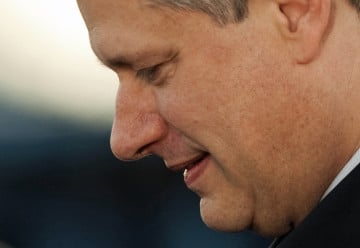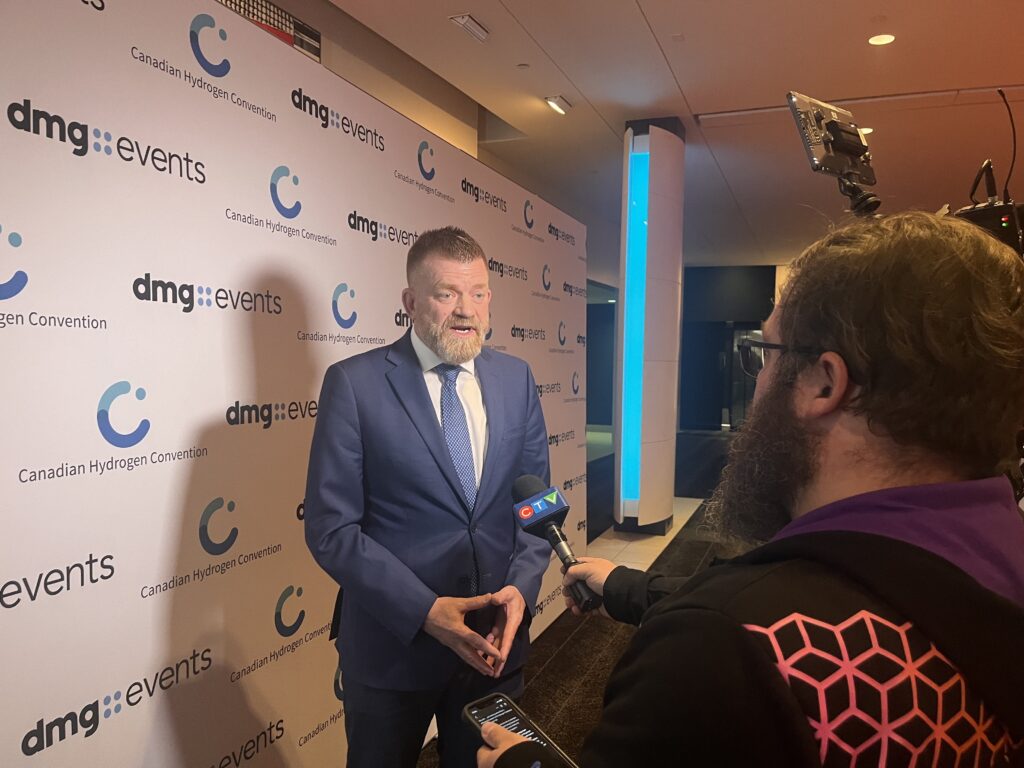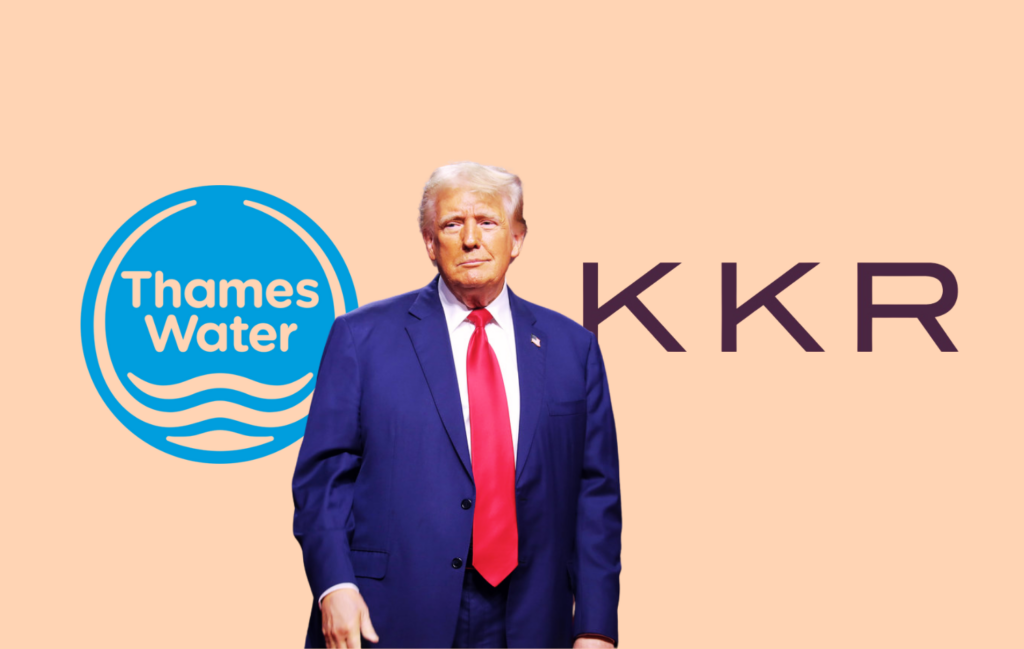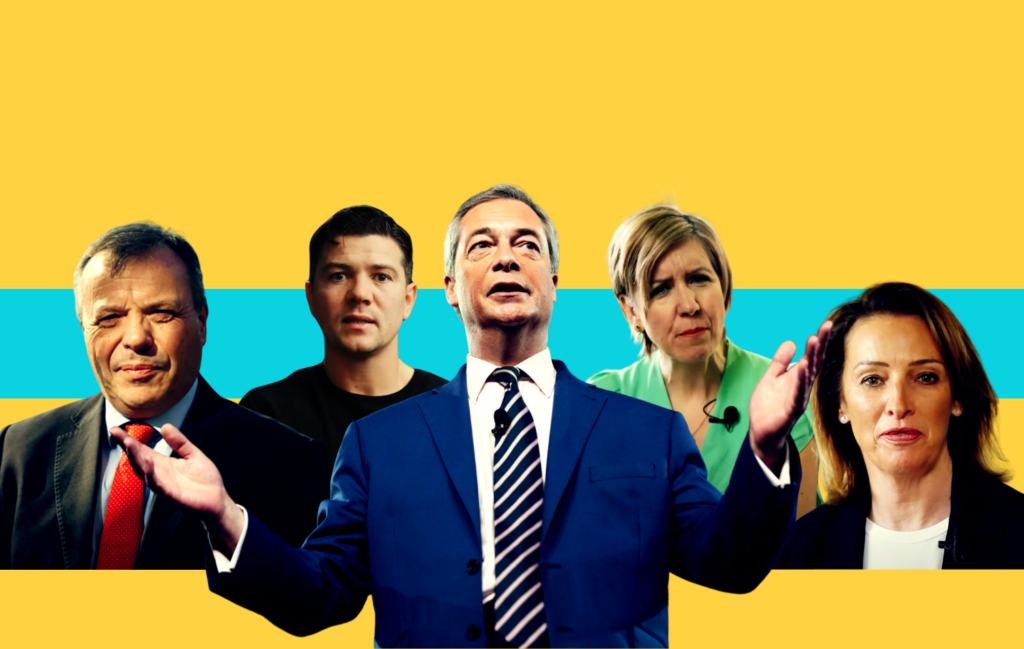Pathetic Update: Prentice has now actually delivered the speech, as written except that he mentioned that Canada is a big, cold country, aligned with the United States. Funny, it was a big and even colder country when it committed in 1997 to a greenhouse gas reduction target that we are going to miss by more than 30 per cent. Does he think that the international community is completely stupid?
Greenpeace Update: Check the bottom of the post for a blistering reaction from Dave Martin at Greenpeace
Canadian Prime Minister Stephen Harper is hiding out in Copenhagen, too embarrassed to show his face in the COP15 plenary, the general meeting of the UN Framework Convention on Climate Change. And who can blame him? Canada’s position is somewhere between colossally unhelpful and punishingly vacuous.
Take, for example, the national statement that Harper deputed to Environment Minister Jim Prentice. It features no commitments whatever – no targets, no money, no apology for past sins – just platitutdes and spin, and bad spin at that. It was released an hour ago, although the session is running behind and Prentice has not yet dragged Canada’s reputation even lower on the Fossil meter.
We have come to Copenhagen to secure a fair, effective and comprehensive climate change agreement. We need an agreement that will put us on a path toward ambitious reductions in greenhouse gases and sustainable, low-carbon economic growth. An agreement that will ensure a growing supply of clean, affordable energy for all countries. An agreement that brings countries together to address our shared global economic and environmental challenges.
Canadians of all ages and in all regions share a profound interest in contributing to effective global action on climate change.
A new global agreement should consist of a single, comprehensive undertaking that includes measurable, reportable and verifiable commitments and actions covering the vast majority of greenhouse gas emissions in developed and developing countries.
To be as fair and effective as possible, a new global agreement should support mutual confidence, and encourage countries to assume increased ambition over time.
It needs to speed the development and deployment of clean, low-emitting technology.
And it needs to support enhanced global action to help the poorest and most vulnerable countries.
Canada is ready to contribute its fair share, as part of a comprehensive global agreement, including fast-start funding.
Achieving such an agreement will require a renewed commitment to work together, a renewed partnership among all nations and governments. It is only through the efforts of all of us that we can protect the most vulnerable among us, including those communities and ecosystems that depend on ice and snow.
Let me conclude by recognizing the United Nations and the Government of Denmark for their tireless efforts and leadership on climate change. Canada will continue to act at home, to align its policies and commitments with those of the Obama Administration, and to work in partnership with all countries, developed and developing, who are committed to effective global action on climate change.
Statement of Dave Martin, Climate and Energy Coordinator, Greenpeace Canada:
Harper government Copenhagen climate statement – an insult to the world
17 December 2009 – Canada’s national statement in Copenhagen is an insult to the world – particularly the poorest and most vulnerable countries that are already suffering the worst impacts of climate change.
The reported climate funding announcement in Copenhagen by Canada’s environment minister Jim Prentice has turned out to be only a vague reference to “fast-start funding” with no specific dollar figure for Canada’s contribution.
Hillary Clinton offered a ray of hope at the Copenhagen climate conference by supporting creation of a climate fund of $100 billion per year by 2020, but Prentice has failed to support this initiative, despite stating in the speech that Canada will continue “to align its policies and commitments with those of the Obama Administration”.
Long-term financing to 2020 and beyond is needed to seal a deal between industrial and developing countries in Copenhagen. At least $140 billion (USD) per year is needed by 2020 to fund emission reductions and adaption to the climate crisis in the developing world. Canada’s fair share of that would be about $4 billion (CAD) per year.
The Harper government needs to provide its fair share of long-term climate financing for the developing world; it needs to support meaningful greenhouse gas reduction targets; and it has to join a legally binding international agreement. It has done none of these things.
The Harper government has refused to be part of a global climate change solution in Copenhagen. Stephen Harper has arrived in Copenhagen, but so far is hiding from the adverse publicity which has followed on Canada’s dismal performance at the conference.
Subscribe to our newsletter
Stay up to date with DeSmog news and alerts







